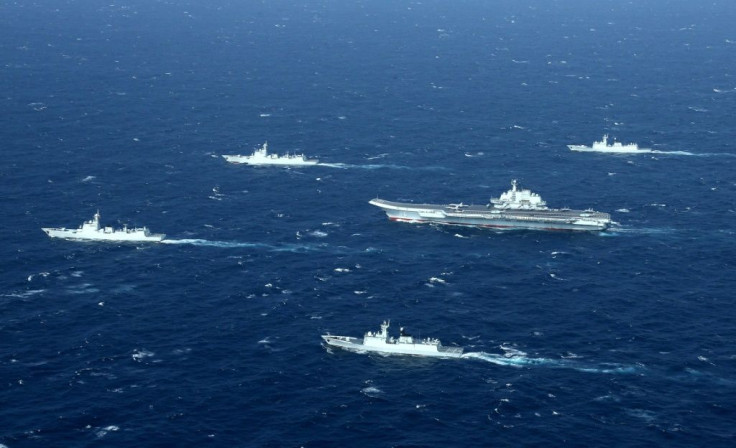Chinese Military Trained 300 Nurses For Night-Time Island Landing Amid Taiwan Invasion Threat: Report
KEY POINTS
- The training was tagged not satisfactory as the nurses were not fast enough
- Though it didn't yield the desired success, the error rate could be minimized
- PLA is also making a hi-tech health management system for the battlefield
Days after it held a beach landing exercise in a province across Taiwan, the Chinese military has conducted a drill to prepare nurses for a combat situation involving an island landing.
More than 300 nurses took part in the training on a boat simulator wherein they were required to administer intravenous medication in near-complete darkness with waves that were 2 meters high, reported South China Morning Post.
The first round of training was held from July 2020 to February this year, the first time PLA was conducting such a simulation for nurses. This comes as tensions heighten in the Taiwan strait, with Taiwan warning that China could launch an invasion by 2025. China claims Taiwan as a breakaway province and has vowed to reunify it.
"There would be insufficient light and turbulent waves in a combat environment when crossing the sea and landing on an island, which makes it risky to perform intravenous infusion, but also affects follow-up treatment of the wounded and sick," South China Morning Post quoted PLA's Joint Logistics Support Force.
The training was held outdoors during the day, but the nurses had to wear goggles that blocked out the light. They had to locate a vein just by touching a patient's arm to administer medication, all this while trying to steady themselves abroad a boat simulator, that rocked from side to side.
About one-third of the time, the nurses were unable to complete the task at the start. However, the error rate was brought down after three days of training, SCMP added, quoting an article from the Chinese-language Military Medical Journal of Southeast China.
However, though the training was deemed effective, it was not satisfactory as the average time to insert an IV and medication was about six minutes, which was not "fast enough."
Besides, in a real-life scenario, the nurses should also face added pressures like the sound of gunfire, mechanical noise, bad weather and seasickness.
An earlier study by PLA in the Fujian province had found that its medics were not ready for battle. The scenario was that medics had to deal with a huge number of casualties after warships were sunk by nuclear weapons during an island landing operation. However, it was concluded that most medics were not trained enough to handle injuries in such an extreme environment.
The report added that China is also developing a hi-tech health management system for the battlefield based on AI technology. The health monitor has been designed to automatically report their condition and location. Based on the data, the AI would decide which soldier should get treated first and guide the nearest medic to them.

© Copyright IBTimes 2025. All rights reserved.





















